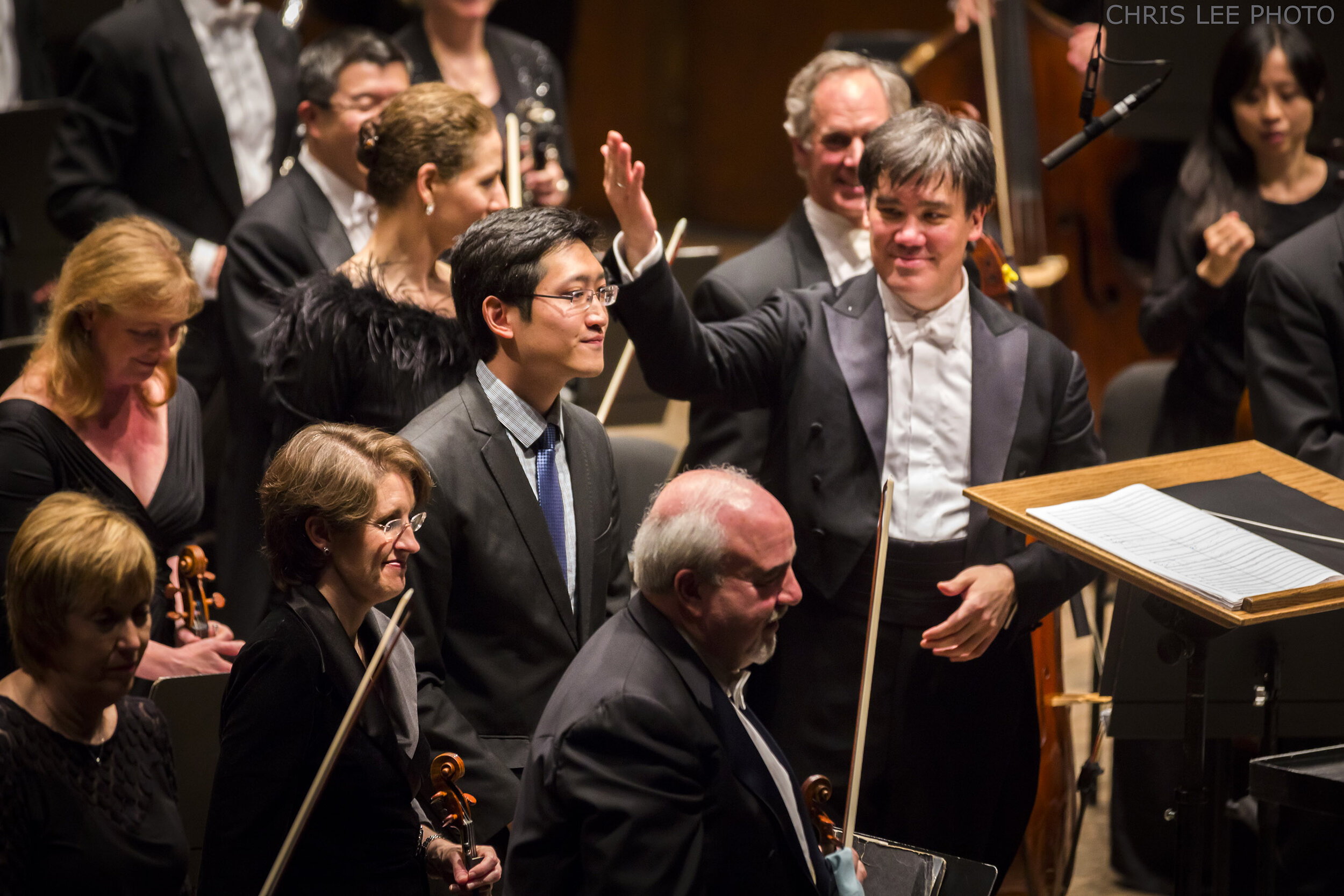Instrumentation: Large orchestra
First Performance: First performances conducted by Alan Gilbert on 11-14 June, 2014, at Avery Fisher Hall, Lincoln Center
Commissioned by the New York Philharmonic, with the generous support of the Marie-Josée Kravis Prize for New Music. Dedicated to the memory of Henri Dutilleux, who generously shared his award to make this piece possible.
Duration: 21 minutes
The strumming or plucking of a lyre: if western music has an origin myth, the lyre is inextricably linked to it. Apollo with his lyre, truth emanating from its well-proportioned vibrations. Orpheus soothing all manner of flora and fauna, as well as the keepers of the underworld. From a simple action upon an instrument comes the mythology of music's power to tame, sway, placate, and console. And with Beethoven, modern and ancient mythology are conjoined. When the composer supposedly channels the Orpheus narrative in his Fourth Piano Concerto, he puts the soloist in the heroic role, pitting it against an orchestra of Furies, and makes a lyre of the piano. Or so the modern myth-making accounts of Beethoven's unannounced program would like us to believe, from A.B. Marx and Franz Liszt to E.M. Forster in Abinger Harvest, to musicologists like Joseph Kerman and especially Owen Jander, who argues that the whole concerto is, in fact, an Orphic retelling.
Lyra begins with such a reading into Beethoven's fourth concerto, taking the very opening of that piece – one that holds special meaning to me as a pianist – as an invocation: a single major chord, transformed into a strum, out of which poetry and lyricism can emanate. These uses and associations seem to hold true across most cultures and ways of music making, so the multiple lyrae of this piece include the Chinese Guzheng, the Turkish Kanun, and the West African Kora, among others. Symbolic elements of the myth’s narrative come to the fore, as do fleeting moments from the vast Orphean musical repertoire of the past four centuries, beginning with Monteverdi's L'Orfeo, in which La Musica herself appears with her lyre to remind us: "I am Music, who, in sweet accents,/ can calm every troubled heart,/ now with noble anger, now with love/ can I inflame the coldest minds."
Anthony Cheung
March 2014
With Alan Gilbert and the New York Philharmonic, 2014. Photo credit: Chris Lee
“[Cheung’s] multifaceted “Lyra” is inspired by the Orpheus myth, which is often said to be at the heart of Beethoven’s fourth concerto. The 20-minute work features subtly warped tuning in the wind section and a harp part that sometimes takes on the guise of lyrelike instruments from around the world. Added to musical flashbacks of Orpheus settings by earlier composers, including Monteverdi and Gluck, these underline the archetypal nature of the myth. Though there are glimpses of specific sound painting — a rattlesnake motif in the percussion section brought to my mind the deadly viper that kills the hero’s betrothed, setting off his quest — Mr. Cheung’s shimmering score makes a persuasive case for the Orpheus myth as part of a global collective consciousness.”
“ “By means of harp, synthesizer, and a vast ensemble with a battery of percussion, Cheung evoked the god’s travels and death in the underworld while paying homage to the privileged place in lore held worldwide by many instruments… The basic act of the harp (and pre-recorded sounds of lyre-like instruments) taming wild forces came across in vivid, powerful focus… Near the end, a recorded mash-up of older, Orpheus-based music took over and faded out, simulating in haunting fashion the figure’s demise.””

